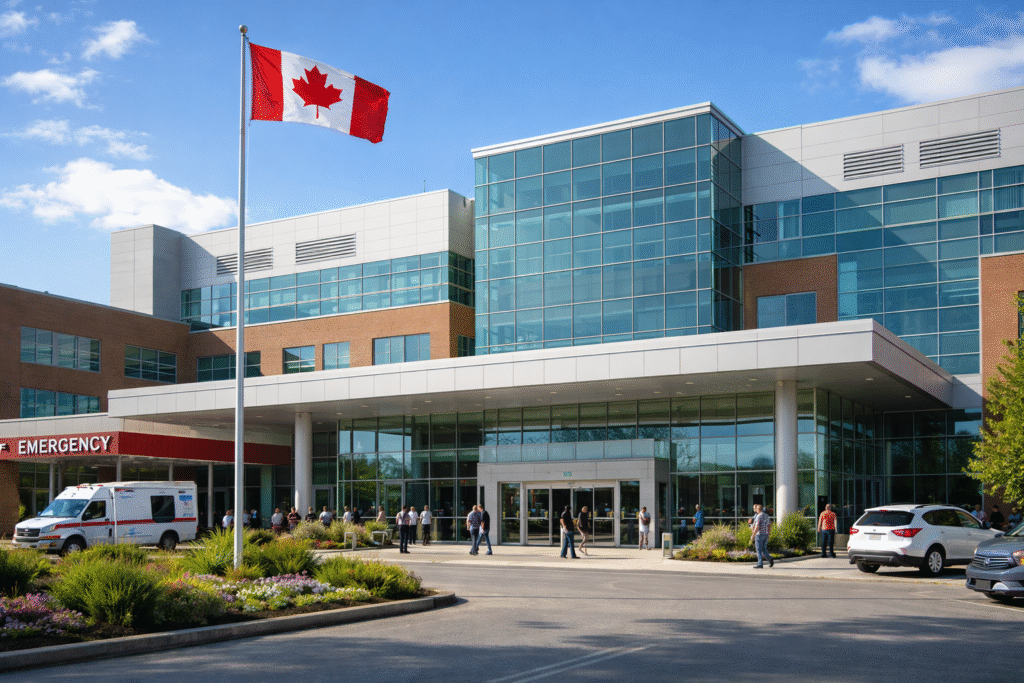When a service you provide may be the only thing standing between life and death for someone, you have a lot of responsibility.
Unfortunately, provincial governments who run the Canadian health-care system don’t take a lot of responsibility for their actions. But that’s changing for our neighbours in Manitoba and, if the Saskatchewan government wants to save lives, it should immediately follow suit.
We’ll get into how Manitoba improved its health-care system, but, first, a short story.
Debbie Fewster was an energetic, loving mother and grandmother who was just starting to enjoy retirement. But at age 70, she was diagnosed with a heart issue and was told she needed a triple bypass within three weeks, or she likely wouldn’t make it.
She actually managed to hold out for over two months … without receiving a call from the Manitoba health system to even schedule her (likely) life-saving surgery. Then, after Thanksgiving dinner last year, she died.
Fast-forward a few months to March of 2025. Along with SecondStreet.org, Debbie’s family held a press conference to bring her story to light and put forward a solution for the Manitoba government — Debbie’s Law.
In short, it would require the system to inform patients if they wouldn’t get life-saving surgery on time. This allows patients to learn if the system is putting their life at risk.
Had Debbie been told she wouldn’t get surgery on time, her family would have done anything to get her the surgery elsewhere — taking out loans, etc., to leave Manitoba and save her life.
It’s an extremely basic step towards accountability and, thankfully, the Manitoba government will be adopting a limited version of Debbie’s Law, in response to the family’s calls for change.
But the Saskatchewan government shouldn’t wait until another family comes forward publicly with a similar story to follow Manitoba’s lead.
We know for a fact that Saskatchewan patients are dying on medical waitlists. In data provided for SecondStreet.org’s annual Died on a Waiting List report, the Ministry of Health revealed that 385 patients died waiting for surgery in 2023-24. (It’s worth mentioning that they did not report the number of patients who died on diagnostic waitlists, so the true total is likely much higher.)
While most of those deaths were for important quality-of-life surgeries like hip replacements, three patients died waiting well over the recommended wait time for brain or spinal surgery, with another patient dying on a cardiac waitlist.
While the province can and should work to bring major reform to the health system, this simple step of just telling patients they won’t get care in time could save lives. Just as with Debbie’s family, those three patients waiting for brain surgery may have gone to Europe, the U.S. or even another Canadian province for care.
Think about it this way: Debbie’s Law actually holds governments to the same standard to which they hold private businesses. If a car company discovers an unsafe part in one of its vehicles, or a food company discovers e-coli on its lettuce, they have to tell people.
Debbie’s Law simply makes hospitals do the same thing.
Adopting Debbie’s Law is an easy, quick way to improve the situation and cut deaths on waitlists. To be extremely clear, it will not fix the system ‒ but it is damage control to ease the worst of what Canada’s health care monopoly can cause.
So, next time you’re talking with your neighbour, your co-workers or even your MLA, bring up Debbie Fewster and the very basic, common-sense idea that would have saved her life.
It might sound a bit strange rolling off of the tongue, but, for once, we should do things as they do in Manitoba.
Dom Lucyk is the communications director for SecondStreet.org, a Canadian think tank.
This column was originally published in the Regina Leader-Post and Saskatoon Star Phoenix on May 6, 2025.
Share on Facebook
Share on Twitter
You can help us continue to research and tell stories about this issue by making a donation or sharing this content with your friends. Be sure to sign up for our updates too!








